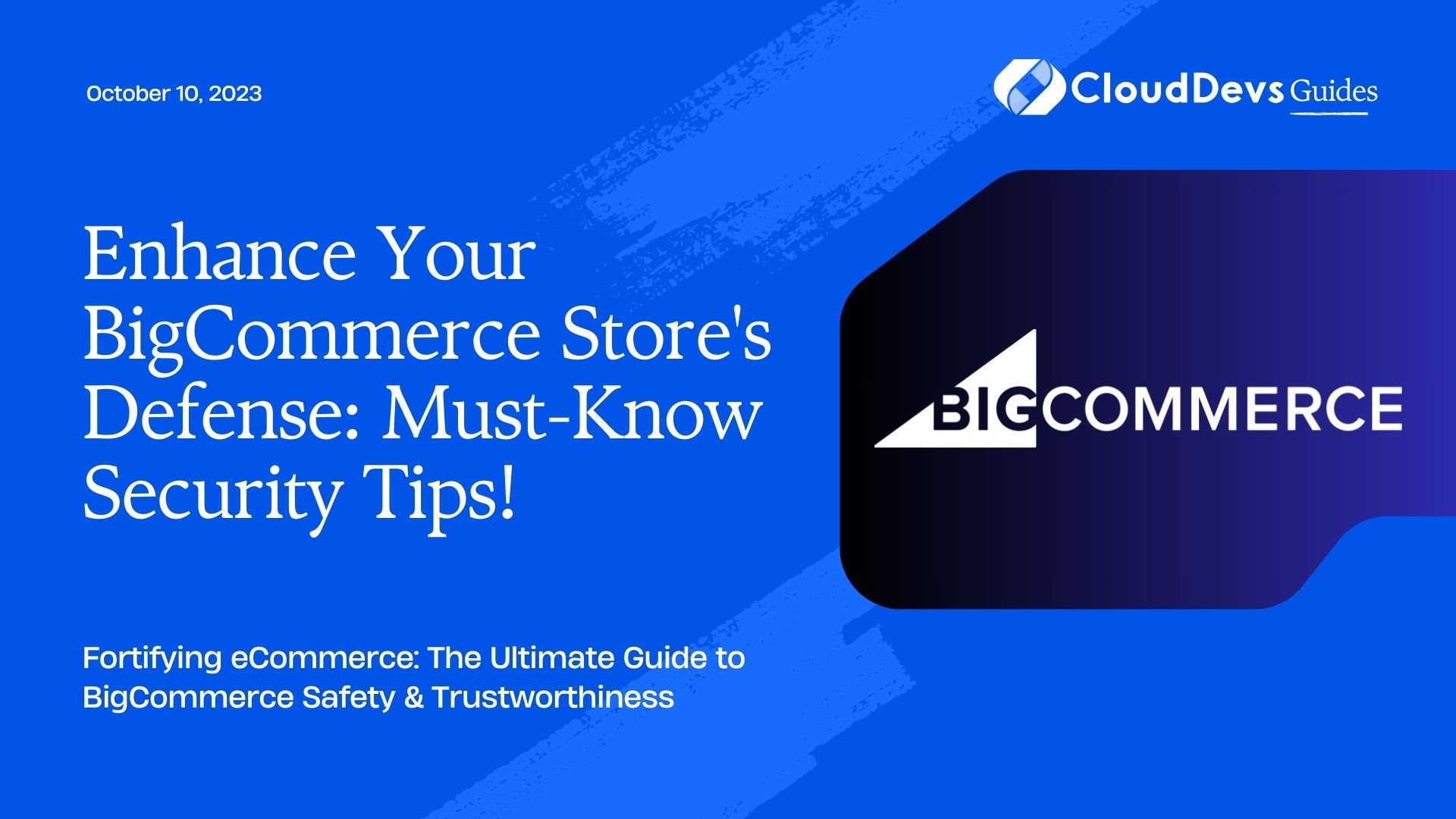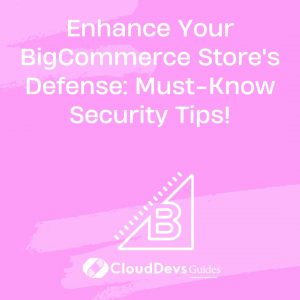Enhance Your BigCommerce Store’s Defense: Must-Know Security Tips!
BigCommerce is a leading platform for online store owners, providing tools and features that enable seamless eCommerce operations. With the increasing prevalence of cyber threats, ensuring the security of your BigCommerce store becomes paramount. Adhering to security best practices not only safeguards your business data but also boosts the confidence of your customers when shopping from your store. This article delves into BigCommerce security best practices, accompanied by examples to help you better understand and implement them.
1. Always Use Strong and Unique Passwords
– Example: Instead of using ‘password123’ (a common and easily guessable password), use ‘B!gC0mm3rce$2023’ or any other combination of uppercase, lowercase, numbers, and special characters.
Why it’s important: A strong password is the first line of defense against unauthorized access to your account. The harder your password is to guess, the less likely someone will gain unauthorized access to your store.
2. Regularly Update and Review User Permissions
– Example: If an employee who had access to your store leaves your company, immediately revoke their access.
Why it’s important: Limiting permissions ensures that only authorized individuals can make changes to your store. This minimizes the risk of internal threats and accidents.
3. Activate Two-Factor Authentication (2FA)
– Example: Using apps like Google Authenticator or Authy to generate time-based one-time passwords (TOTPs) that complement your login credentials.
Why it’s important: Even if someone knows your password, they won’t be able to access your account without the second verification step provided by 2FA.
4. Ensure SSL is Enabled for Your Store
– Example: When you visit your website, the URL should start with ‘https://’ and not ‘http://’. This ‘s’ indicates that the connection is secure, usually accompanied by a padlock symbol.
Why it’s important: SSL encrypts the data transferred between the user’s browser and your website, ensuring sensitive data like credit card numbers remain confidential.
5. Regularly Monitor and Update Apps and Integrations
– Example: If you’re using a third-party app for email marketing, ensure you’re always using its latest version.
Why it’s important: Outdated apps can contain vulnerabilities that hackers can exploit. By updating them regularly, you patch these vulnerabilities.
6. Educate Your Team About Phishing Scams
– Example: An email that appears to be from BigCommerce asking for login details, but upon closer inspection, the sender’s email is slightly misspelled or the links redirect to a different domain.
Why it’s important: By recognizing phishing attempts, your team can avoid falling for scams that might compromise your store’s security.
7. Backup Your Store Data Regularly
– Example: Schedule automatic backups to be performed weekly or even daily, depending on the volume of your transactions.
Why it’s important: In the unfortunate event of data loss or a cyber-attack, having a backup allows you to restore your store without significant downtime or loss of information.
8. Utilize Web Application Firewalls (WAF)
– Example: Services like Cloudflare or Sucuri can provide an added layer of protection against threats like DDoS attacks, SQL injections, and more.
Why it’s important: A WAF filters, monitors, and blocks malicious traffic to your website, ensuring only legitimate users can access your store.
9. Regularly Audit Your Store for Vulnerabilities
– Example: Employing third-party services to simulate cyber-attacks on your store to identify potential weaknesses.
Why it’s important: By regularly assessing your store’s security, you can proactively identify and address vulnerabilities before they are exploited.
10. Implement Content Security Policy (CSP)
– Example: By setting up CSP headers, you can dictate which sources your web content can be loaded from, preventing the loading of malicious scripts.
Why it’s important: CSP helps to prevent cross-site scripting (XSS) attacks, ensuring your website content isn’t tampered with by malicious actors.
Conclusion
Securing your BigCommerce store is not just a one-time action but a continuous process. By adopting and regularly reviewing the best practices mentioned above, you can greatly enhance the security of your eCommerce platform, ensuring a safe shopping experience for your customers and protecting your business data from potential threats.
Table of Contents







